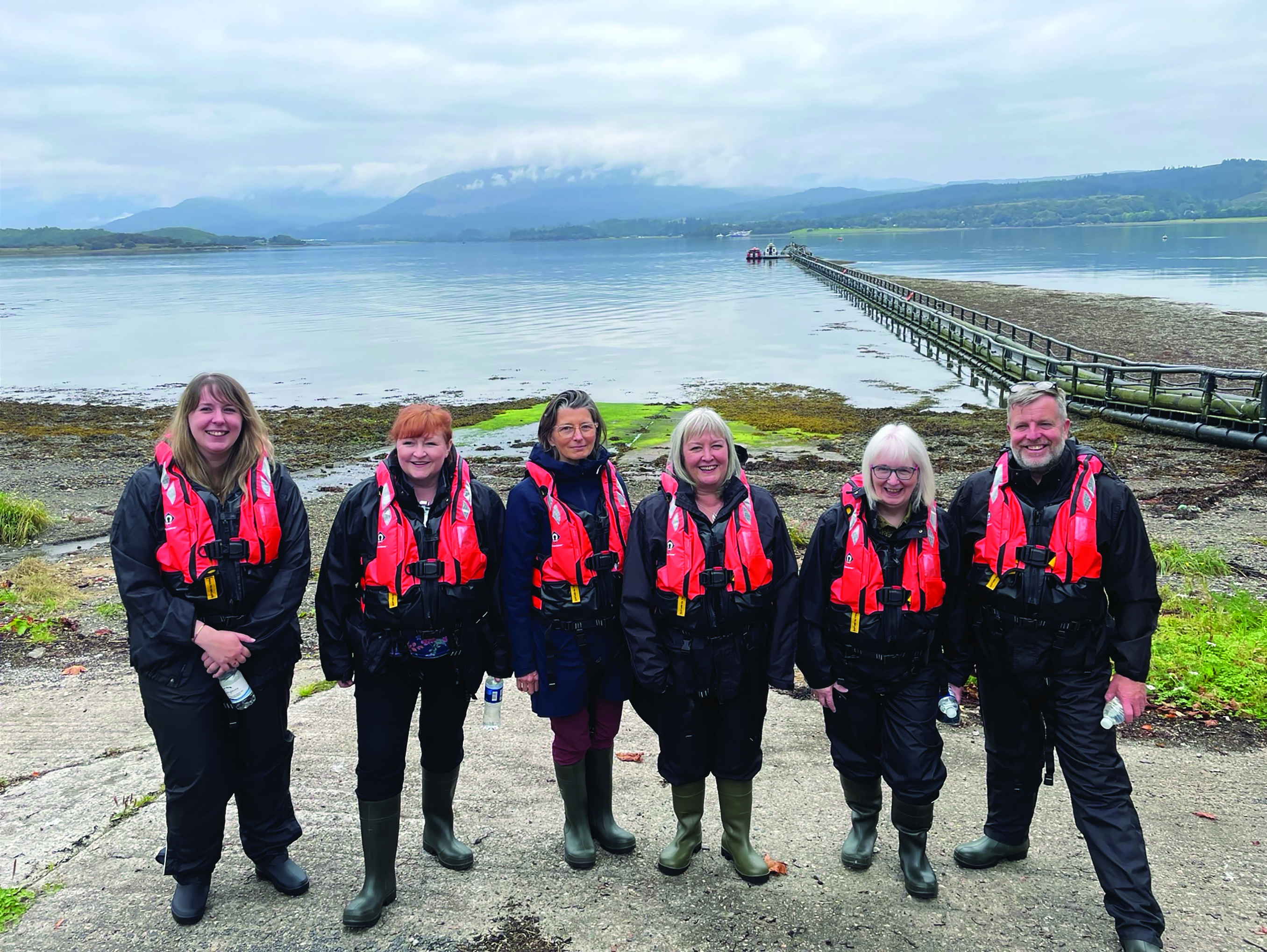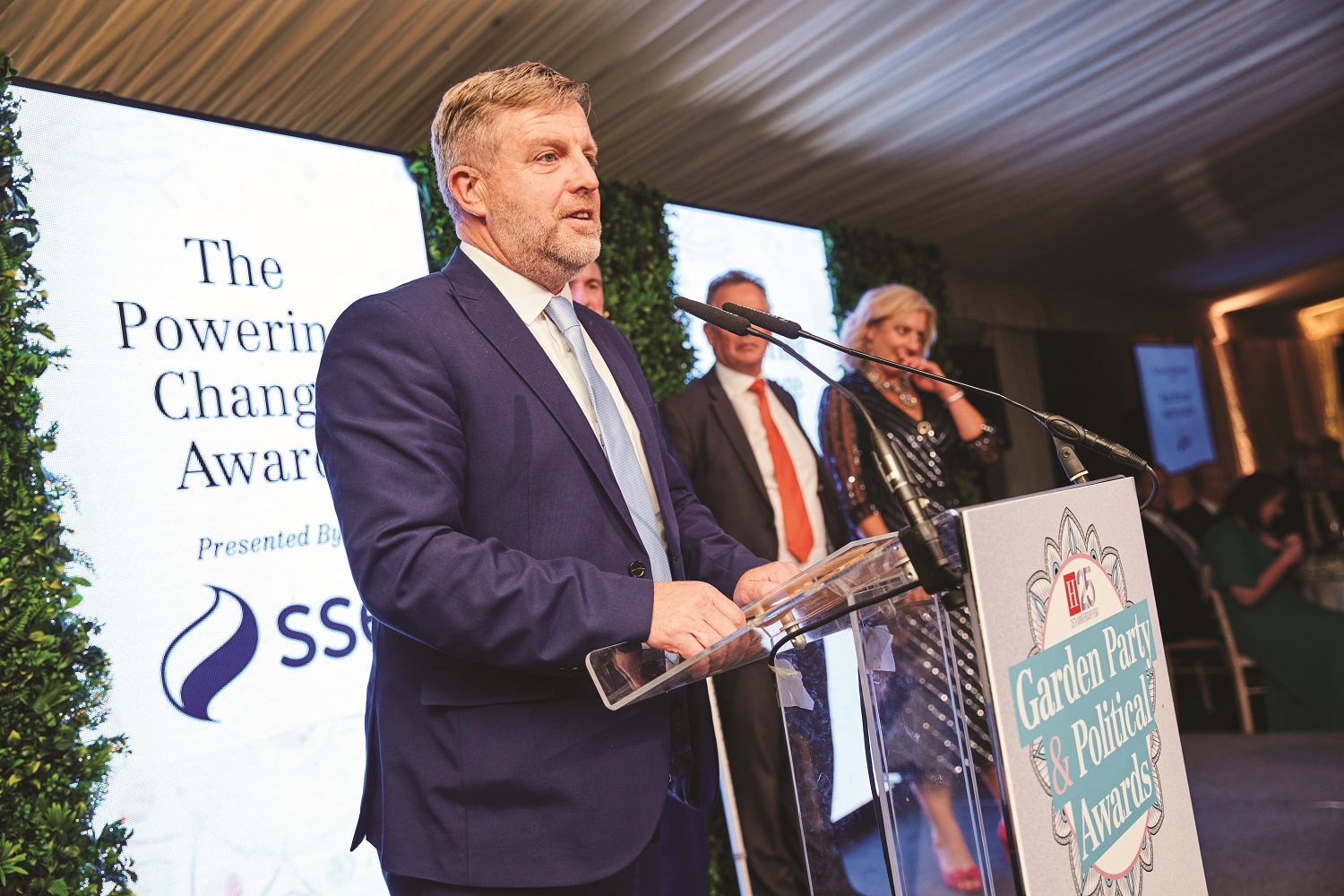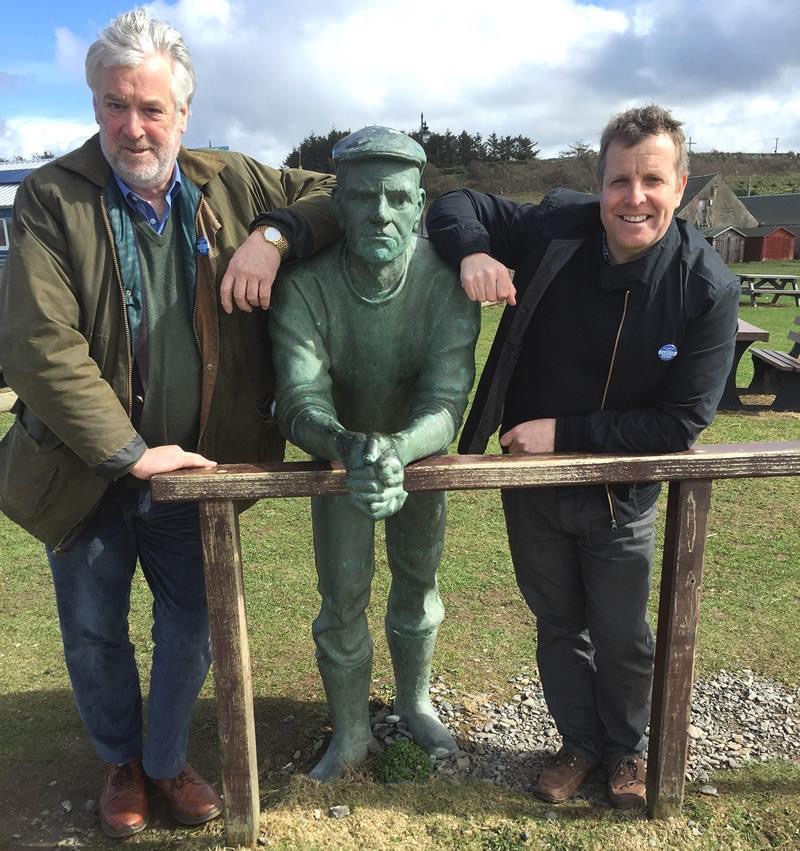Finlay Carson: Bringing MSPs together post-Covid was a struggle
“Rural’s not sexy,” says the convener of the Scottish Parliament’s Rural Affairs and Islands Committee, Finlay Carson. He’s musing on the difficulty of getting issues that matter to rural Scotland to the top of the political agenda.
“We have that problem in our own party,” he says. “All our constituency MSPs are from rural constituencies. Despite that, our press team spend more time dealing with reacting to what the national press is going to pick up, so they’re not going to talk about the ban on landing berried hen lobsters in the Solway or the massive opportunities that razor clams have in export markets or anything like that. It’s going to be drug deaths in Glasgow.”
Yet as convener of the committee, it is Carson’s job to ensure rural Scotland gets what it needs. And he loves it. “It’s my dream job.”
There was a lot of new members elected who still were in battle mode
His committee, which he has chaired since the 2021 election, was recently awarded the Powering Change Award at the Holyrood Garden Party. That award recognises the vital but often unseen work of the parliament’s committees, and the Rural Affairs and Islands Committee earned it this year for carefully and successfully picking its way through a number of thorny issues, not least the potentially contentious Agriculture and Rural Communities Bill.
But where the committee is now is in stark contrast to what it was like at the start of the session, Carson tells Holyrood. “The committee didn’t start off on a particularly good footing, I think hugely because of Covid,” he says.
“There was no opportunity for the committee to meet face to face or do our usual away day. When I first started in here and I was on the Environment, Climate Change and Land Reform Committee, I remember one of the first people I met was Kate Forbes, and there was Stewart Stevenson and John Scott, and we had an away day. We visited some rivers, and we had an overnight stay and we got to know the committee members very well, away from the political side of things, and I think that’s really important.
“Four years ago [during the pandemic], when we started in this place, we got our lunches delivered to our rooms, we weren’t allowed to meet anybody, and we came out of the back of an election where there was a lot of new members elected who still were in battle mode. [I was] trying to get across that the culture of a committee is to leave your party politics at the door and scrutinise the government and hold them to account – and that’s sometimes difficult if you’re the party of government – but I struggled as convener early on to try to get the committee to work well because there was lots of suspicions about decisions that were made and the direction of travel.

Credit: Andrew Cowan
“I think that was very much because I never had an opportunity to sit down with Jim Fairlie, I didn’t have the chance to sit down with Jenni Minto or Karen Adam or Mercedes Villalba or whoever and build up that relationship, that we were all individuals, and we weren’t in there as Tories or SNP or whatever. It did take a little while for the committee to actually start performing as well as I hoped it would.”
Thankfully the committee today is in a much better place. There is a recognition that it “doesn’t matter what side of the political spectrum you’re from – people are here to do a good job”, he says.
That’s not to say, of course, that he’s always completely happy with the outcome of those conversations. Take the Agriculture and Rural Communities Act, for example. “I didn’t think it was appropriate as the convener of the committee to express my concerns at the time, because I think it’s important to be neutral, but I had some quite strong views,” he says.
“I would like to have seen the bill be a little bit different to what it is. I think what we’ve got in effect is the [EU’s] Common Agricultural Policy with a Scottish twist, rather than something that’s completely new and up to date and modern, which will encourage farmers and support farmers to reach climate change targets, address diversity loss, whatever. So I’m somewhat disappointed it wasn’t something new and it very much was a replacement for CAP – son of CAP, you might describe it. But again, I was proud of the way that the committee members dealt with that.”
There is an argument that we could double the number of MSPs or we extend the period that the parliament sits
The committee began looking at post-Brexit arrangements for agriculture long before the bill was introduced. This pre-legislative scrutiny was important because it allowed MSPs to hear directly from rural communities about their needs from the start, rather than in reaction to what the government was proposing. But this type of in-depth, long-running scrutiny is sadly rare in the parliament. And the reason for that, Carson says, is a lack of time.
A lot has changed since the Scottish Parliament was established in 1999, not least the devolution of further powers. Conversations are currently being had about how to ensure the parliament is fit for the future, and there are questions about whether the institution as created 25 years ago is able to meet the increasing number of demands being made of it. There is a feeling across parliament that committees are often too reactive, spending most of their time scrutinising new legislation and barely able to do post-legislative scrutiny, let alone venture into more proactive inquiries.
When he became convener, Carson had a lot of ideas about what he thought the committee should be looking at – lots of work on rural depopulation, cross-committee inquiries on housing and healthcare, thinking about a bill to consolidate legislation on animal welfare. But then the reality of what it actually had time for kicked in.
“I suppose that’s the naive convener,” he says. “But when you speak to other conveners who’ve been here for a lot longer, there’s absolutely no doubt the workload on committees [tend to focus on] actually passing legislation, rather than looking to see whether it’s fit for purpose or whether something has worked to deliver what the policy outcomes were supposed to be. We’ve kind of lost sight of that.”
 Credit: Andrew Perry
Credit: Andrew Perry
The solution to this issue is not easy or obvious. He says: “There is an argument that we could double the number of MSPs or we extend the period that the parliament sits to have more capacity for committees to do the work. There’s an argument that the committees in Westminster work better than up here, and they have elected conveners who then really concentrate on it.
“I’m still a constituency MSP, I’ve got four members of staff who are working every hour God gives them to get through our casework so I can commit to being the convener. I would love to do that full time, and I think that there probably is an argument that as a convener you could easily do it every day. But I don’t think the public would accept that we need another 129 MSPs.
“So, what are the other alternatives? How do you find the time within the parliamentary calendar to do the work that the public would expect it to do?”
Convenorship of a committee is a demanding role, but it allows Carson to do what he most enjoys about being an MSP: chatting to folk. He says it’s the “real-life stories about how a policy impacts Billy or Susan or Johnny” that gets him out of bed in the morning, not the “high-level, legislative, policymaker” discussions. Both of those things, he says, should be equally important – but that isn’t always recognised in the parliament.
You can’t just have a good cabinet. You need your foot soldiers as well
He reveals that he once “kind of fell out” with Ruth Davidson, his former party leader, over this. She, he says, was focused entirely on ensuring she had a formidable frontbench team with the debating prowess to match, and “set out to handpick those who were going to be on the [top of the regional] list”.
Carson was adamant that having a strong backbench was just as important. “What [Davidson] didn’t realise is you can have a really good frontbench team, but if they’re not backed up with the guys in the backbenches, the guys who get the questions, the guys who do the graft and sit on the committees, there is little point. You can’t just have a good cabinet. You need your foot soldiers as well.”
And he doesn’t mean being a foot soldier for the party – he means a foot soldier for the people he represents in Galloway and West Dumfries. That is how you win constituency seats, he argues, and that is how to enter government. “You can’t come to power in Holyrood or form part of the government if you rely on regional list members; you need to be winning constituency seats and the way you do that is to have MSPs who absolutely understand their constituents, who will put stuff to one side to help them.”
 Carson with late Tory MSP Alex Fergusson
Carson with late Tory MSP Alex Fergusson
Perhaps that attitude stems from how he got into politics in the first place. Carson never set out to be a politician. His first involvement was as part of his local community council, and even then he only did so as a favour to his uncle who was worried the group would be disestablished. He got to know more people in his local area through this role, but the business he co-owned with his brother John continued to be his main focus. But it brought him to the attention of the late Tory MSP Alex Fergusson, with whom he got on very well.
One day Fergusson turned up at Carson’s office unexpected. “I thought I’d done something wrong because Alex was with his office manager,” he recalls. It turns out the Scottish Conservatives were in need of a new councillor to contest the Castle Douglas and Glenkens ward for Dumfries and Galloway Council. And, on the proviso that such a role can be “as full-on as you like”, he decided to go for it.
As it turned out, he liked it very much and it quickly turned into a part-time job alongside his business. And so, when Fergusson announced he was retiring from Holyrood and in need of a successor, Carson’s answer was clear: “I had to.”
That election was 2016. He won 43.5 per cent of the vote and saw off a challenge from then-environment minister Aileen McLeod. While he would go on to be deputy spokesperson across a number of rural-adjacent portfolios for his party, he never made it into the shadow cabinet. After being re-elected in May 2021, he relinquished any party role to become the Rural Affairs and Islands Committee convener. And that’s how he prefers it.
“I have got no ambitions to be in the shadow cabinet or the leader because I think the way this place works, the most effective way to deliver stuff for rural Scotland, which I’m passionate about, is through the committees. It’s the committee that decides the direction, and I feel I have a hand on the rudder. I wouldn’t have any other job now. I love it.”
Holyrood Newsletters
Holyrood provides comprehensive coverage of Scottish politics, offering award-winning reporting and analysis: Subscribe